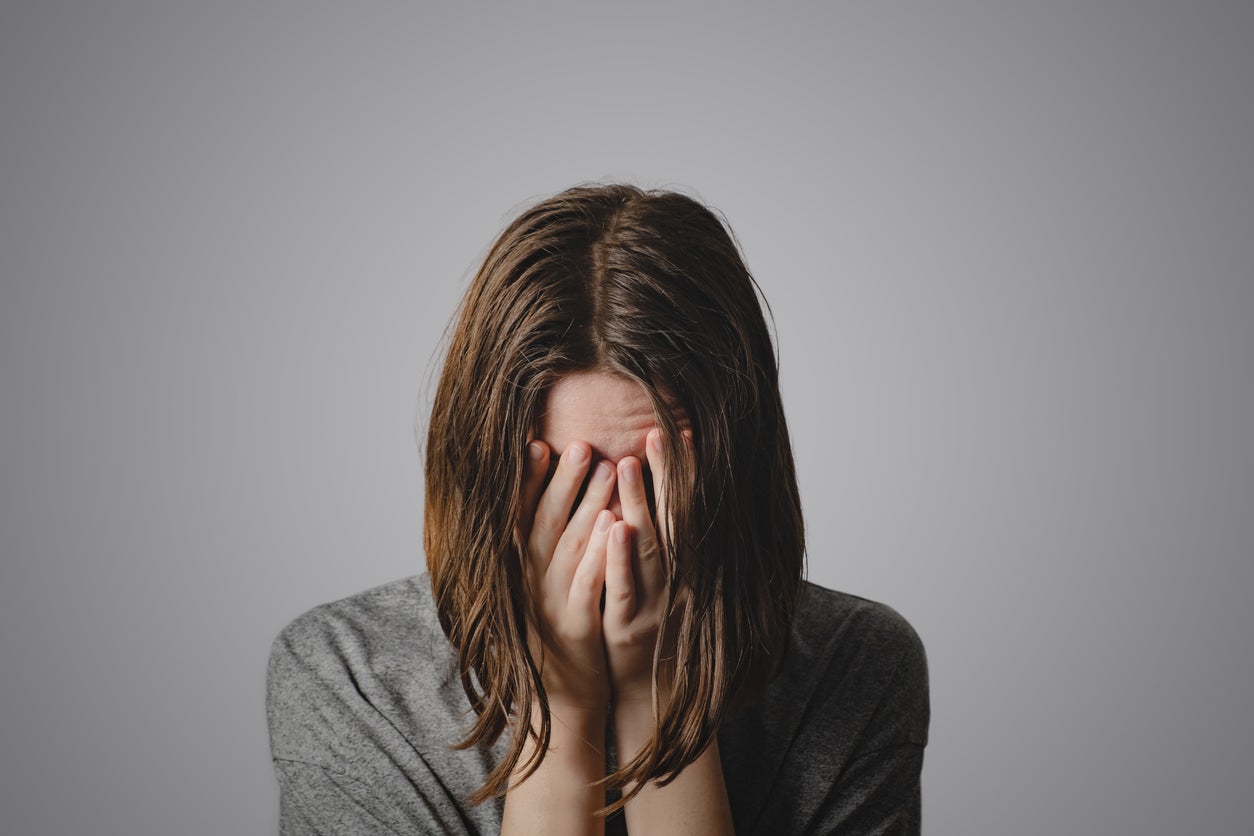The Independent's journalism is supported by our readers. When you purchase through links on our site, we may earn commission.
This is what it’s like to live with a chronic skin picking habit
After googling desperate phrases like ‘can’t stop picking skin’, I finally found a word that fit exactly what I was suffering with – dermatillomania


It’s perhaps a cliche to say that some people wear their emotions on their face. We might refer to such people as an “open book”, as if their face were a story to be read, a place where deeper truths about them can be understood through a look, a furrow of the brow or a pursing of the lips.
But in my case, the story of what’s going on for me mentally isn’t just subtly perceivable in the gestures and expressions of my face; it’s written, literally, on my skin.
I’ve always had spots, and I’ve always picked them. When I was a teenager, I’d spend time in front of the mirror worrying about the hormonal bumps and lumps I was not alone in having. This eventually abated as I entered adulthood and my skin cleared up, but in 2018, this skin picking behaviour not only reignited but erupted in flames.
I can’t remember if there was a particular blemish that sparked the series of events that would ultimately lead me down a path of seeking psychiatric help for what I was experiencing. I found it increasingly difficult to resist the burning urge to pick my skin for the addictive “mini high” it gave me.
I do know, though, that I was living with strangers in London, was extremely anxious and often depressed, and that when I picked my skin, I realised I could mentally travel far away for a while. For the numbing minutes I passed at the mirror, I felt extreme relief. I’d experience the urge, which became so strong and impossible to ignorable as a full-blown compulsion, and couldn’t rest until I’d acted on it.
I’d be in the office where I worked at the time and have to leave my desk to go to the staff bathrooms to pick the imperfections my nervous fingers had scouted. Talking to people, I’d unconsciously trace my finger around my jawline, hairline, neck, chin and cheeks, trying to find what to me was gold. I was like a kettle on the cusp of boiling over, and picking was popping the lid, releasing steam.
It was only after a counsellor I was seeing at the time mentioned to me that I kept touching my face, and I told her I couldn’t stop going into bathrooms to destroy my skin, that I admitted to myself that this “bad habit” was actually something far more pernicious.
After these conversations and googling desperate phrases like “can’t stop picking skin”, I finally found a word that fit exactly what I was suffering with: dermatillomania, or skin picking disorder, which is thought to affect as many as one in 20 people.
Categorised in the Diagnostic and Statistical Manual of Mental Disorders (DSM-5) as an obsessive compulsive-related disorder, its characterised by recurrent skin picking resulting in skin lesions, where the individual targets healthy as well as previously damaged skin; repeated attempts to stop; and picking which causes distress or impairment in social, occupational or other important areas of functioning.
According to the TLC Foundation, it’s one of a group of behaviours known as body-focused repetitive behaviours (BFRBs), self-grooming behaviours in which individuals pull, pick, scrape, or bite their own hair, skin, or nails, resulting in damage to the body. The disorder can have strong ties to other mental illnesses or disorders, such as anxiety and OCD.
For me, the impact on the way I interact with the world has been drastic. Sometimes I don’t want to socialise because my skin is looking particularly “bad”; I’m a lot more self-conscious and not as confident. Instead of pulling my hair back into my favourite hairstyle of a bun like I used to, I wear my hair long and around my face in an attempt to cover marks.
To keep up to speed with all the latest opinions and comment sign up to our free weekly Voices Dispatches newsletter by clicking here
Sometimes I get funny or even pitying looks from strangers, but I’m also paranoid, so maybe I just read this judgement in the faces of the people I pass in the street. I doubt myself. I spend money I don’t have on expensive skincare products and thick makeup to cover my scars.
It’s not easy, but actually recognising the behaviours and seeking out professional help has set me on a path to recovery. I’ve had cognitive behavioural therapy (CBT) and learned techniques for stopping, and I’m open about my experiences with excoriation disorder in a way I before would’ve been too embarrassed to be.
There’s a shame attached to having imperfect skin, especially in the Instagram age of filtered perfection, but actually, I’ve realised that far more people suffer with this sort of thing than most of us realise, and bringing it to light rather than hiding it away can chase some of that shame away.
Lauren’s memoir ‘Hands’ will be published by Harper North on 20 January. You can pre-order your copy here

Join our commenting forum
Join thought-provoking conversations, follow other Independent readers and see their replies